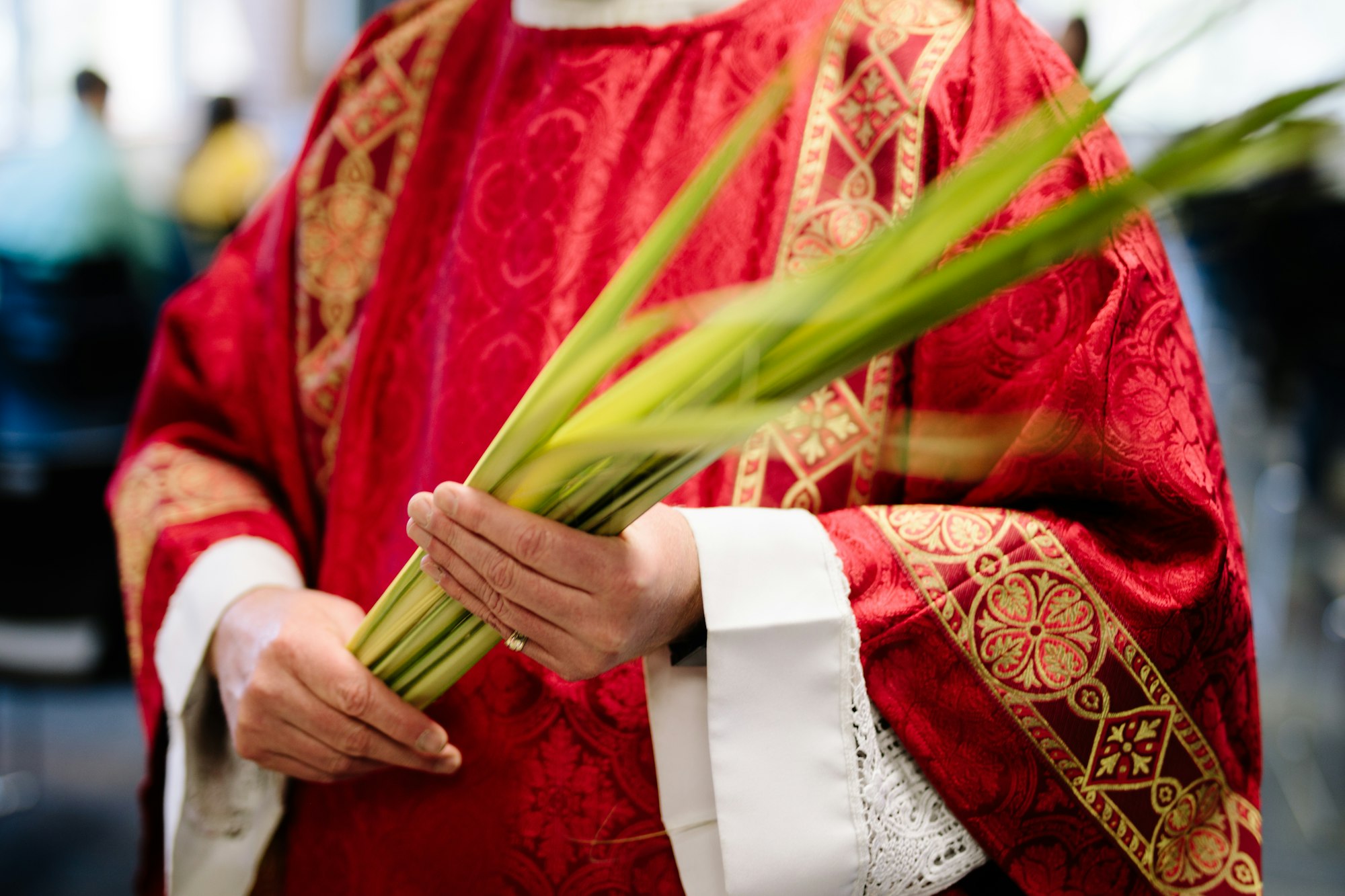Carrying Our Cross

The Church celebrates this sixth Sunday of Lent as both Palm Sunday and Passion Sunday. This is the place in the Liturgical year when the Church stop us, so that we can remember and relive the events which brought about our redemption and salvation. What we commemorate and relive during this week is not just Jesus’ dying and rising, but our own dying to sin and selfishness and rising in Jesus, which will result in our healing, reconciliation, and redemption. Attentive participation in the Holy Week liturgy will deepen our relationship with God, increase our Faith, and strengthen our lives as disciples of Jesus.
Today's celebration can be said to be bittersweet. It is joyful and sorrowful at the same time. We celebrate the Lord’s entrance into Jerusalem to the cries of his disciples who acclaim him as king. Yet we also solemnly proclaim the Gospel account of his Passion. In this touching contrast, our hearts experience in some small measure what Jesus himself must have felt in his own heart that day, as he rejoiced with his friends and wept over Jerusalem.
The Gospel we heard before the procession (cf. Mt 21:1-11) describes Jesus as he comes down from the Mount of Olives on the back of a colt that had never been ridden. It recounts the enthusiasm of the disciples who acclaim the Master with cries of joy, and we can picture in our minds the excitement of the children and young people of the city who joined in the excitement. Jesus himself sees in this joyful welcome willed by God. To the scandalized Pharisees he responds: “I tell you that if these were silent, the stones would shout out”. Yet Jesus who, in fulfilment of the Scriptures, enters the holy city in this way is no new age prophet, no impostor. Rather, he is clearly a Messiah who comes in the guise of a servant, the servant of God and of man, and goes to his passion. He is the great “victim”, who suffers all the pain of humanity. So as we joyfully acclaim our King, let us also think of the sufferings that he will have to endure in this week.
Let us think of the slanders and insults, the snares and betrayals, the abandonment to an unjust judgment, the blows, the lashes and the crown of thorns... And lastly, the way of the cross leading to the crucifixion. He had spoken clearly of this to his disciples: “If any want to become my followers, let them deny themselves and take up their cross and follow me” (Mt 16:24). Jesus never promised honor and success. The Gospels make this clear. He had always warnedhis friends that this was to be his path, and that the final victory would be achieved through the passion and the cross. All this holds true for us too. Let us ask for the grace to follow Jesus faithfully, not in words but in deeds. Let us also ask for the patience to carry our own cross, not to refuse it or set it aside, but rather, in looking to him, to take it up and to carry it daily.
This Jesus, who accepts the hosannas of the crowd, knows full well that they will soon be followed by the cry: “Crucify him!” He does not ask us to contemplate him only in pictures and photographs, or in the videos that circulate on the internet. No. He is present in our many brothers and sisters who today endure sufferings like his own: they suffer from slave labor, from family tragedies, from diseases... They suffer from wars and terrorism, from unrest among the nations. Women and men who are cheated, violated in their dignity, discarded... Jesus is in them, broken voice, suppression, addiction and abuse. He asks to be looked in the eye, to be acknowledged, to be loved. It is not some other Jesus, but the same Jesus who entered Jerusalem amid the waving of palm branches. It is the same Jesus who was nailed to the cross and died between two criminals. We have no other Lord but him: Jesus, the humble King of justice, mercy and peace.
We are beginning the Passover week. How are we going to part of the suffering of Jesus. We are challenged to examine in our own lives in the light of some of the characters in the Passion story — like Peter who denied Jesus, Judas who betrayed Jesus, Herod who ridiculed Jesus, Pilate who acted against his conscience as he condemned Jesus to death on the cross, and the leaders of the people who preserved their position by getting rid of Jesus. You can be like Simon of Cyrene helping or taking up the cross or you can be like the good thief acknowledging and proclaiming Jesus as the Messiah. or you can be like the Joseph of Arimathea or Nicodemus or be the ladies like Mary. Salome, Joanna participating in the
suffering of Chris and being at the service of Jesus.